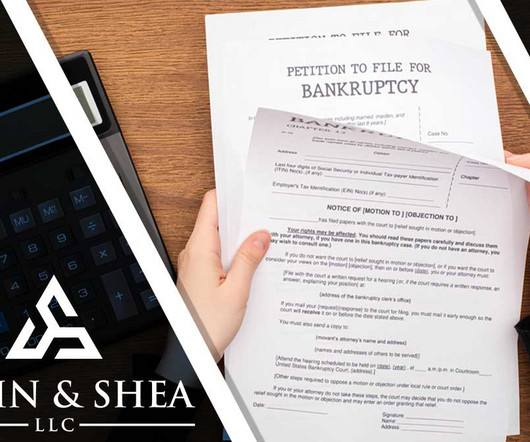Can You Use a Bankruptcy to Stop a Foreclosure?
Sawin & Shea
SEPTEMBER 6, 2023
If you’re considering filing for bankruptcy, you’re not alone; roughly 375,000 people filed for bankruptcy in 2022, and home foreclosure filings rose 115% in 2022 over the number of foreclosures in 2021. The good news is that homeowners can get back on their feet and keep their homes with various options to stop foreclosure.


















Let's personalize your content